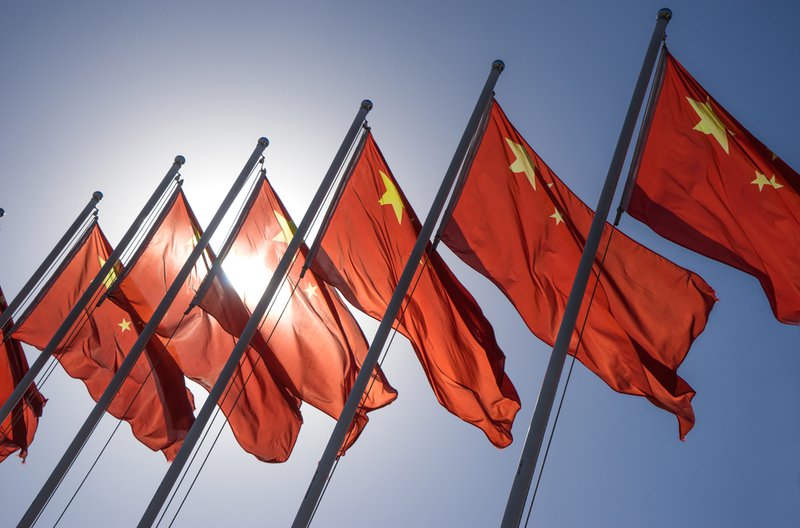What Does China Really Think About Blockchain
Blog Post

Shutterstock
March 7, 2018
Don’t let China’s crackdown on cryptocurrency trading and Initial Coin Offerings fool you; The Chinese government has embraced blockchain since 2016. China’s interest in the technology was first seen in 2016 when the Chinese Government released the 13th Five Year Plan (2016-2020), a significant document that guides China’s development. The document highlighted blockchain as one of the key technologies to support.
Since then, China’s Ministry of Industry and Information Technology has issued two blockchain technology standards -- the Blockchain Reference Architecture Standard in May 2017 and Blockchain Data Format Specification Standard in February 2018 [Both links in Chinese]. By clearly defining the terms of blockchain-related work and specifying stakeholders in the ecosystem, these documents have facilitated the standardization of Chinese blockchain industry. Blockchain has even been a hot topic at this year’s “Two Sessions” conference that took place earlier this month. As one of the most important political conferences in China and the annual plenary sessions of the National People’s Congress (NPC) and the National Committee of the Chinese People’s Political Consultative Conference (CPPCC), the conference sees participation from politicians, Chinese policy advisors and even CEOs of technology companies.
The government’s endorsement of the technology has encouraged local governments and cities to compete for the title of China’s blockchain hub. On December 23rd, 2017, Hangzhou, home to the tech giant Alibaba, became the first city in China to include blockchain technology in its annual governmental work plan. The Hangzhou government also held a successful Global Blockchain Summit in April, 2017 that attracted hundreds of blockchain companies, influencers, and enthusiasts from China and abroad. Two other major cities - Guangzhou and Suzhou - also released policies that would support blockchain technology and cultivate blockchain startup communities. Guangzhou [Link in Chinese] plans to provide blockchain startups, labs and research centers up to 5 million yuan (approximately USD 788,400) as financial rewards. Suzhou [Link in Chinese] is setting up a 1 billion yuan (approximately USD 157.7 million) special fund to support the establishment of a “Blockchain Valley” through close collaboration with Tongji University, one of China’s leading universities. The “Blockchain Valley” [Link in Chinese] serves as a resource center for 16 blockchain startups (with more coming soon) that apply blockchain technology to address challenges in areas such as medical records and e-government among others.
Is blockchain the new wild west in China?
Chinese companies are moving fast in the blockchain space. According to this report [Link in Chinese], released by the Chinese Blockchain Application Research Center in Davos, the number of China’s blockchain patents has increased from 2 in 2014 to 428 in early 2017, surpassing those in the U.S. both in speed and quantity. While the impressive number of patents does not necessarily equate to high-quality blockchain technologies, it demonstrates the strong interest and commitment of Chinese enterprises and startups towards blockchain development.
In addition to increases in patent filing, there have also been efforts made towards implementing blockchain technologies to address critical issues in various industries, including retail, healthcare, and renewable energy trading. For example, Alibaba is partnering with the Changzhou government [Link in Chinese] to develop a blockchain solution for securely sharing medical records between health centers and hospitals. On December 14th, 2017, Nasdaq-listed Chinese retailer JD.com, Walmart, IBM and Tsinghua University launched the highly touted Blockchain Food Safety Alliance initiative, which will see the four entities working together to utilize blockchain technology to provide real-time food traceability and enhance food authenticity. In addition, Chinese companies are also exploring blockchain applications in energy trading. On January 9th, Green Panda Energy Group, a subsidiary of one of the country’s largest clean energy operators, announced a project to build a blockchain energy management system to facilitate the trading of renewable solar, wind and hydroelectric energy.
Most strikingly, blockchain technology is also expected to revolutionize Chinese voting and electoral systems. Bankledger, a Shenzhen-based blockchain company, signed a strategic cooperation agreement [Link in Chinese] with Kunming Public Choice Tech Co. to promote blockchain’s voting applications in December 2017. The collaboration aims to facilitate the use of blockchain to increase election transparency and security. Kunming Public Choice Tech Co is the technology provider [Link in Chinese] for the local digital elections system in the Yunnan province.
However, not everyone is convinced about the benefits of the decentralized nature of blockchain technology. At the Two Sessions conference earlier this month, Zhang Ye, the Director of Information Center of China Securities Regulatory Commission reportedly expressed his reservations. “Blockchain’s advocates for absolute decentralization and have no solid ground...the key is to explore how to achieve decentralization through a centralized infrastructure," he said.
This follows comments made by officials from the People's Bank of China (PBoC) about issuing a centralized digital currency and removing standard features from the underlying blockchain such as the peer-to-peer mechanism and anonymity. In fact, at the 2017 Boao Forum for Asia, Li Lihui, former president of the Bank of China and now head of the blockchain research at a fintech self-regulation group in China, is quoted as saying that “[whether it's IBM or R3,] what they are researching on are multiple centralizations instead [of] complete decentralization."
With strong government support and active participation from the private sector and universities, China could have a large impact in shaping the future of the blockchain world. However, the decentralized nature of blockchain raises interesting questions about how the fundamentally centralized, top-down Chinese government hopes to influence the growth of this technology.